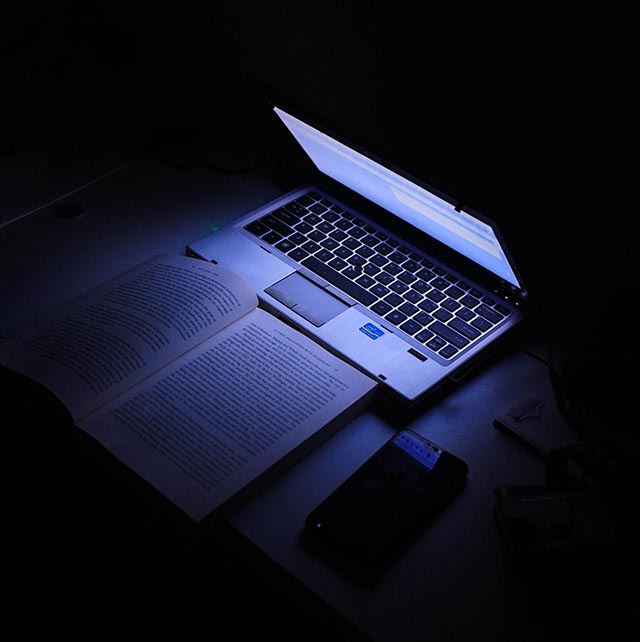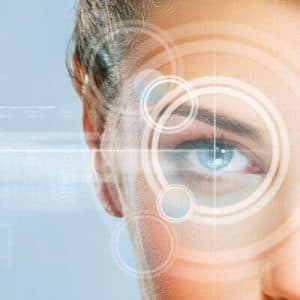Do you spend hours working on your computer? You could be exposing yourself to blue light eye damage.
Looking at a computer screen for long periods of time may be harmful to your eyes due to the blue light it emits. Research has shown that overexposure to blue light can lead to eye strain and disrupted sleep patterns.
Now, researchers are looking into whether an excessive amount of exposure to blue light poses other risks to eye health.
What is blue light?
Visible light is made up of a variety of wavelengths and energy levels. The part of the visible light spectrum with the most energy is blue light.
The fact that blue light has a higher energy than other colors means that it can quickly penetrate the retina at the back of the eye. While certain structures in the eye, such as the cornea and lens, usually block harmful rays like ultraviolet light, they allow blue light to pass through.
How does blue light affect the eye?
Research has shown that when exposed to very high levels of blue light, the retina’s light sensitive cells can be damaged.
The exact mechanism of cell damage is still unknown and whether this is a risk factor for vision problems such as age-related macular degeneration.
However, studies are being conducted on whether the blue light emitted by digital devices like cell phones, tablets and computers is enough to qualify as excessive exposure.
What we do know is that blue light contributes to digital eye strain, since it scatters more freely than other light. When scattered blue light rays enter the eye, they create visual noise, which is thought to be a cause of digital eye strain symptoms including:
- Back, neck, and shoulder pain
- Blurred vision
- Frequent need to rub or blink your eyes
- Difficulty with accommodation (focusing between near and far)
- Dry eyes
- Eye train and headaches
Speak to an eye doctor near you to find out how blue light may affect your eyes and how blue light lenses can offer protection.
SEE RELATED: 7 Tips for Keeping Your Eyes Healthy During COVID-19
How to protect your eyes from blue light
The most effective way to protect your eyes from blue light is to wear blue-light-blocking lenses.
These lenses have specially crafted lenses that filter out or block the blue light given off from digital screens. The lenses claim to help reduce potential damage to your retina and protect your eyes from glare from prolonged exposure to blue light.
Other ways to protect your eyes from blue light
The American Academy of Ophthalmology recommends the follow steps to manage the risks from blue light exposure:
The 20/20/20 rule to prevent eye strain
While you’re using a computer or device that emits blue light, every 20 minutes stop to focus on an object that is around 20 feet away. Focus on that object for at least 20 seconds before you return to your up-close work.
Keep your eyes moist
While using blue-light-emitting devices, eye drops, such as artificial tears, and room humidifiers, can protect your eyes from becoming too dry and irritated.
Use eyeglasses with the right prescription
Squinting at screens for long periods of time isn’t good for your eyes’ overall health. If you wear eyeglasses to correct your vision, be sure the prescription is for the distance between your eyes and your screen, which should be at least an arm’s length away. The majority of glasses are designed for greater distances.
Adjust the blue light on your screen
Adjusting your screen to a night setting with warmer tones can help reduce the risk of eye strain and sleep disturbance. Blue light filters that go over your screen can be helpful in reducing the glare off your screen as well, especially when working at night.
LEARN MORE: Guide to Eye Exams
Contact an eye doctor near you to learn more about the effects of blue light and how blue light lenses can help keep your eyes healthy.


